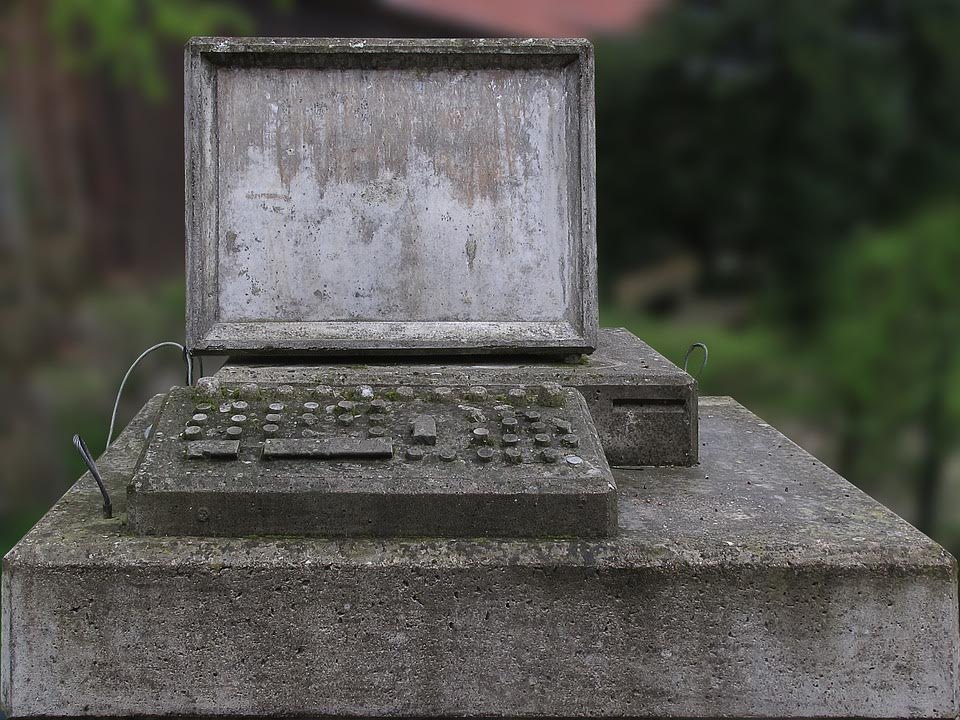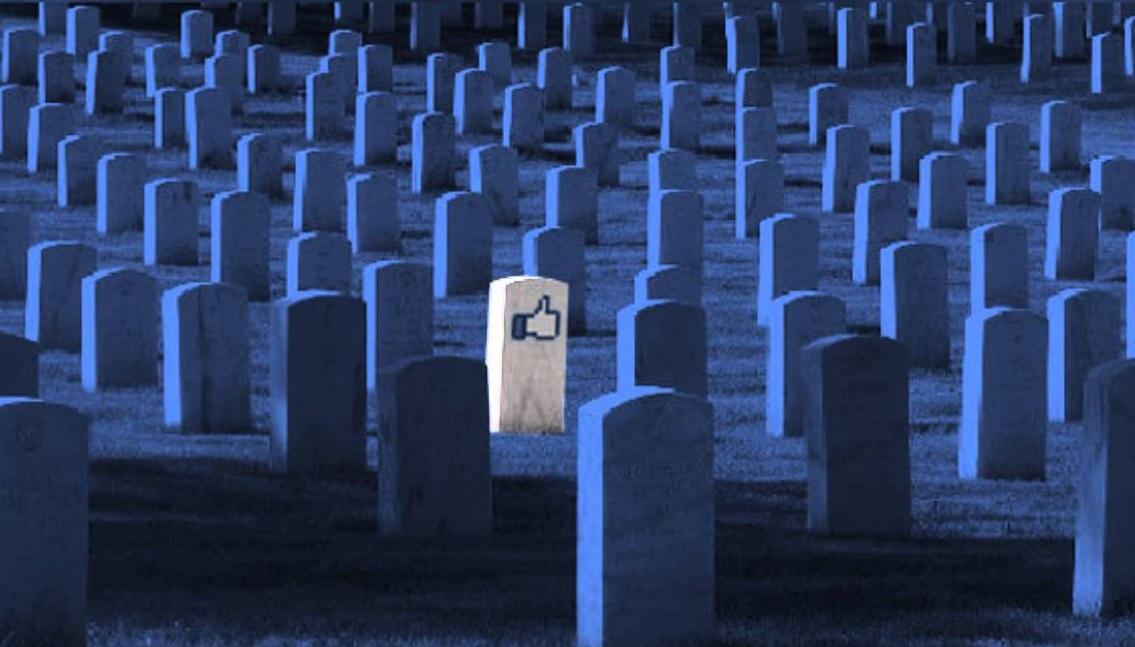Even though I didn’t know Pepper*, her death impacted me.
I’d heard her name spoken in passing by my friend Elizabeth – their adventures, her yearly visits to Elizabeth’s home on the east coast, the mundane stories that sounded spectacular through the lens of “My best friend and I…”
I knew Pepper was sick, I knew there were hospitals involved. I knew Elizabeth was asking for “good thoughts and positive energy,” the language of social media we’ve become accustomed to seeing when loved ones are in trouble. From across an ocean, I knew Elizabeth was hurting, I knew the community around her was hurting, but I only observed it from the vantage point of Facebook. That is how I came to care about Pepper. Such can be the power of Facebook.
Shortly after those requests for positivity, I saw in my Facebook feed that Pepper had died. A lump stuck in my throat for a person I’d never met, a person I would never know. And despite being on complete opposite sides of the country – Elizabeth in New England, me in Hawai‘i – I witnessed Elizabeth mourning. I witnessed Pepper’s community mourning.
Shortly after Pepper died, her Facebook page was converted to a memorial account. For those of you who aren’t familiar, a memorial Facebook account is one where the owner has died, but the page can still be visited, and in some cases (depending on the privacy settings) friends can still post on the timeline. But a memorialized account will not appear publicly i.e. as a suggested friend to other Facebook users or on slight;y macabre birthday reminders.
A memorialized Facebook page is one that is very much frozen in time. That person’s last posts and photos will remain, and unless they appointed a legacy contact – someone who will run their Facebook account after their death – nothing will change.
In Pepper’s case, she would always be young, hopeful, and full of potential. I visited, and still do visit Pepper’s memorial page often (it is open to the public, or at least friends of friends). People write directly to her, telling Pepper they miss her, wish they were still doing the regular dinners, outings, goofy things. They wish her happy holidays and happy birthdays. Others write about her, write about the good times they had with her, how special she was, extolling her humor, her wit, her quirkiness.
When Pepper’s death was very new, Elizabeth, an artist and photographer, wrote a post that struck me in its intimacy as well as restraint – two things that don’t always pair well, if at all, on social media. Here was a person who was tired, hurting, but needed to express grief. And Facebook helped her do that.
Elizabeth chatted with me one afternoon, about her experience mourning Pepper on Facebook. “Grief is not tidy, grief is not quick, grief is not rational. Grief is so deeply misunderstood by the American public. I think seeing people in your immediate circle openly grieve a loved one can help teach people how to better empathize when someone you know is in mourning, and therefore how to be more sensitive, delicate, and patient when someone is grieving.”
And while Facebook has been criticized as being a minefield of “triggers” and “trolls”, Elizabeth, as well as many others, somehow find Facebook to be a safe place to publicly mourn. “It’s kind of intangible. I can’t explain exactly why Facebook feels safe. But thinking about my own experience and my own circumstances, the biggest part of it to me is that I interacted with was Pepper’s own page first, before it was a memorial. It was always a place we could reach each other, regardless of the distance between us. When I lived in Scotland, it was social media that connected us regularly since calls were too expensive to do regularly. So part of it just still feels like this is a really, really far distance, too far for calls or even responses. But it feels like I can still reach her directly there, silly as that may sound.”
Elizabeth too found value in the community the came forward after Pepper’s death.“The community aspect had so much value. Both from coming together with other people mourning the same person you are, and also just having access to the memories offered up by others – particularly when you live far away. I’ve really loved being able to have a visual history of other people’s memories of Pepper, moments in her life I may have heard about but never saw photos of.
I remember right after she died, I was at the hospital, sobbing in a hallway. I could barely form words aloud, but I had so much to say, so much that I was feeling. I remembered a portrait I had taken for an assignment in photo school while Pepper was visiting. I wrote a post – half as an update since I had asked people for good thoughts the moment I found out she was in the hospital, and half as a memorial announcement of her passing.
I posted that photo and not 10 minutes later her father found me and asked me for a copy because I had captured Pepper as he remembered her: beautiful, a little sassy, a little mischievous, but also strong and calm. That became kind of the official photo of her. It was used at her memorial, people were making prints of it, etc. And they would never have seen it without Facebook.”
But amidst the goodwill and affirmation that Elizabeth experienced on Facebook memorial pages, there are some that worry that Facebook grieving can devolve into a sort of “mourning Olympics”, with acquaintances staking a “claim on the effect of a tragedy”.
There can be a competitiveness in social media mourning that can become less about the person who died and more about who is (at least publicly) grieving the hardest. Wrote Lia Zneimer in Time, “Social media feeds into our desire to be the source of breaking information, to feel important, to be seen as knowledgeable and interesting. Endlessly retweeting tragedy becomes less about the expression of grief and more about wanting to prove we’re in the know and that we, too, were affected by the loss.”
When a dear friend tragically died a couple years ago, I found myself avoiding his memorial Facebook page. Not because I am any stranger to social media or public conversations about death or grief, but because I started to feel like people were coming out of the woodwork to make sure their sadness was counted. I stopped visiting the page altogether because I didn’t recognize my friend anymore, I’ll call him Brad, in the one-upmanship going on on the page.
Brad was a sweet, charming guy who didn’t have a lot of friends, but was generally liked by everyone. I rarely remember a time that anybody had a harsh word to say about him. But after the first wave of posts expressing shock and sorrow ebbed, a new “style” of posting emerged. Long, long posts from people many of us had never heard of. Some had had little to no interaction with Brad in years – online or otherwise. The language of the newer posts were flowery, indulgent, and chock full of platitudes. There was almost a “clubhouse” mentality of who Brad’s biggest mourners were.
While close friends and family enjoyed sharing stories that captured the essence of Brad – his goofiness, his gentleness – the emerging posts painted Brad as “Saint Brad”, completely washing away his humanity in favor of praising what may or may not have been true about him. A small group of us formed a private messaging group to get a break from the “Saint Brad Fan Club” and to share stories without feeling judged on the emotional performance of our posts. This was one experience for me where Facebook mourning did not feel safe. It felt like theater.
I’m not trying to dictate how people should mourn. We can’t be gatekeepers of people’s memory. But when grief collides with the artifice of Facebook, it’s hard to know how to approach either. On one hand, grief is intensely personal, sometimes impossible to verbalize, like Elizabeth said. On the other hand, “By design, social media demands tidy conclusions, and dilutes tragedy so that it’s comprehensible even to those only distantly aware of what has happened.”
When Claire Wilmot lost her sister, she was troubled, if not frustrated and upset by the postings on her sister’s Facebook. Wilmot wrote in The Atlantic, “The majority of Facebook posts mourning Lauren’s death were full of ‘silver linings’ comments that were so far removed from the horror of the reality that I found them isolating and offensive. Implicit in claims that Lauren was no longer suffering, or that ‘everything happens for a reason’ are redemptive clauses—ones that have a silencing effect on those who find no value in their pain.”
So what makes for such great disparity in Facebook mourning? What went into make Elizabeth’s experience so drastically different from Wilmot’s? Is it the cause of death? Was it the difference between a best friend and a sister? Was it an age difference that in turn affected how the community interacted with social media? (For the record, I don’t know how old Claire Wilmot is.)
Or was it just two different perspectives? Were there “Elizabeths” engaging on Wilmot’s sister’s page, and “Claires” avoiding Elizabeth’s posts?
It’s now been years since Pepper died. I still check in on her memorial page from time to time and it is still going strong. People still express sadness and longing, but more often than not people are sharing good things with Pepper. They remember her birthday, they tell her about births, they include her in celebrations. Pepper – her photo, her memory – was included in Elizabeth’s wedding.
It makes sense that for some this all might be too much. To be asked, or feel obligated to work through some very intense, complicated feelings in a public space can seem like a crude request.
Can mourning on Facebook ever feel completely safe? Does any public mourning?
But maybe (whether we like it or not) mourning on Facebook is becoming part of our cultural death education. By seeing others be vulnerable, we are less afraid or embarrassed to do so ourselves. By seeing other people engage with death, we as a society might be less inclined to live in denial.
*Names have been changed to protect identities.
Louise Hung is an American writer living in Japan. You may remember her from xoJane’s Creepy Corner, Global Comment, or from one of her many articles on death, folklore, or cats floating around the Internet. Follow her on Twitter.




